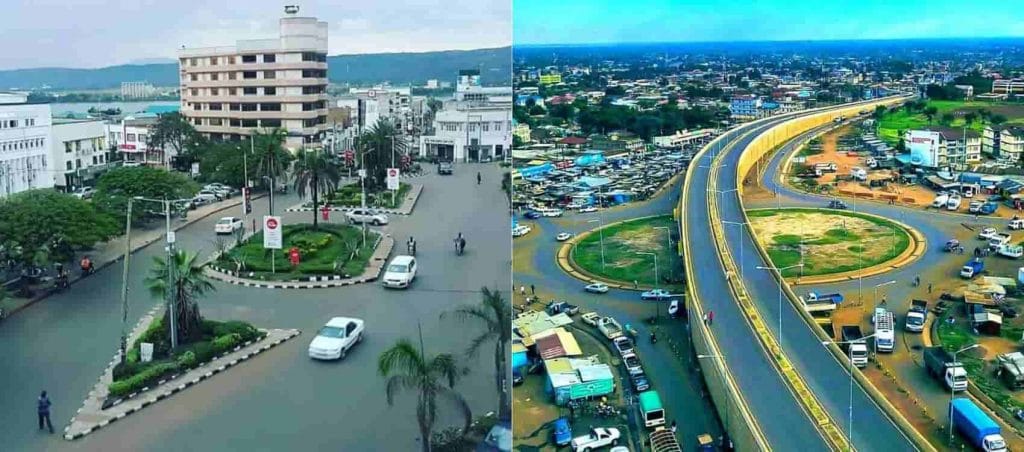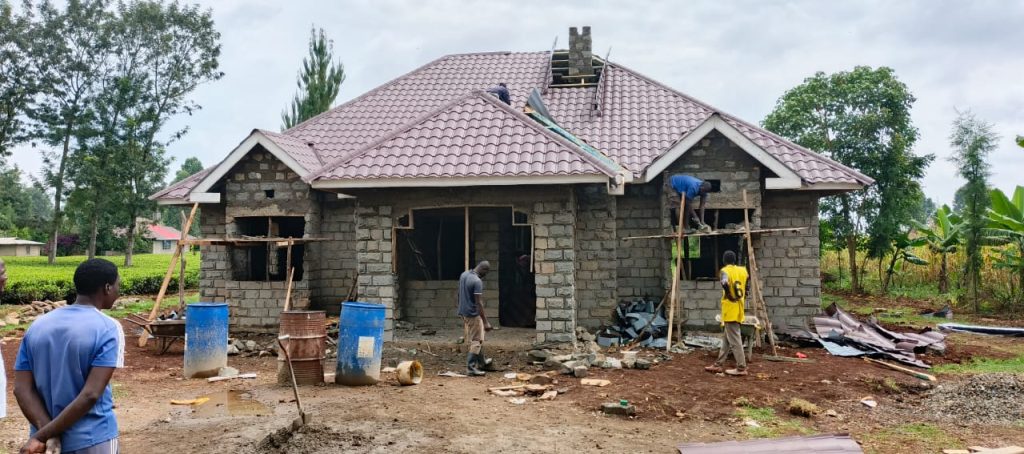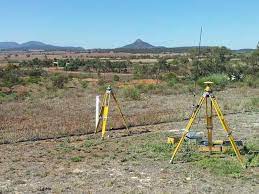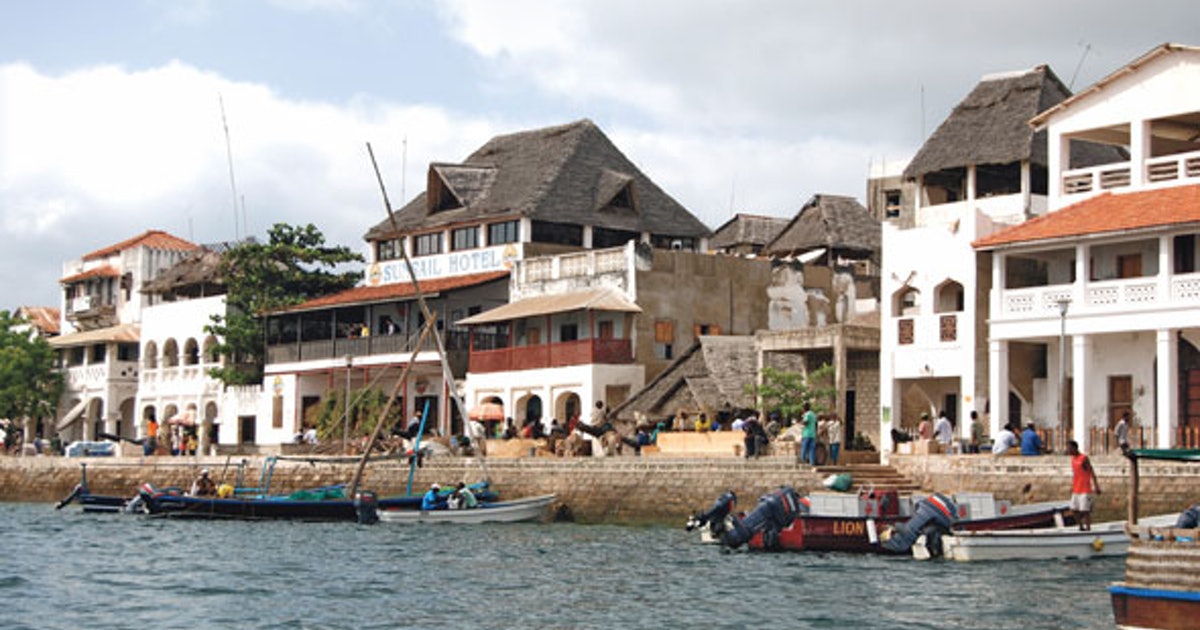Quick Summary: Kiambu vs Machakos at a Glance
Average Cost Snapshot per Acre / 50×100
The cost of land in Kiambu vs Machakos counties shows a clear gap. In Kiambu, a 50×100 plot in urban areas like Ruiru or Juja ranges between KES 2.5M–6M, while rural areas can be more affordable. In Machakos, similar plots in Athi River or Mua Hills cost around KES 800K–2.5M, making it a budget-friendly entry point for many buyers.
Best County for Residential vs Farming vs Investment
Kiambu works best for residential plots due to its proximity to Nairobi, strong infrastructure, and rapid urbanisation. Machakos offers cheaper farming land, ideal for large-acreage agriculture and mixed-use projects. For investment potential, both counties perform well—Kiambu benefits from constant demand near Nairobi, while Machakos gains from industrial growth in Athi River and upcoming infrastructure corridors.
Current Price Benchmarks & Local Examples
Average Price per Acre / 50×100 in Kiambu
The average cost of land in Kiambu County is among the highest outside Nairobi. A 50×100 residential plot near Ruiru, Juja, or Thika Road typically sells between KES 2.5M–6M. Larger parcels, such as an acre in semi-rural areas like Gatundu, can range from KES 10M–25M depending on infrastructure and demand.
Average Price per Acre / 50×100 in Machakos
The cost of land in Machakos County is lower compared to Kiambu, making it attractive to new buyers. A 50×100 plot in Athi River or Lukenya averages KES 800K–2.5M, while more rural plots can start below KES 500K. One acre in Mua Hills or Kangundo may go for KES 3M–8M, offering more space for less money than in Kiambu.
3 Recent Real Listing Examples with Price + Size
Ruiru, Kiambu: 50×100 residential plot listed at KES 3.8M with a ready title.
Athi River, Machakos: 1/8 acre (50×100) selling at KES 1.2M, close to Mombasa Road.
Mua Hills, Machakos: 1-acre parcel priced at KES 6.5M, ideal for farming or holiday homes.
Related: Land Transfer Costs in Kenya Explained
Price by Micro-Location (Where Value Differs Most)
Kiambu Hotspots: Ruiru, Thika Road Corridor, Juja, Gatundu
In Kiambu County, demand is highest in towns along the Thika Road corridor. Plots in Ruiru and Juja fetch between KES 3M–6M for a 50×100 due to proximity to Nairobi and universities. Gatundu and other semi-rural areas are cheaper, with 50×100 plots starting from around KES 1.5M, making them more accessible to mid-income buyers.
Machakos Hotspots: Athi River, Lukenya, Mua Hills
Machakos County has emerging hubs that attract buyers seeking affordable land near Nairobi. Athi River offers 50×100 plots from KES 800K–2.5M, supported by industries and modern estates. Lukenya is popular with investors due to easy access to Mombasa Road, while Mua Hills appeals to high-end buyers looking for scenic land priced at KES 6M+ per acre.
Where to Expect Bargains vs Premium Pockets
Bargains: Outskirts of Gatundu (Kiambu) and Kangundo (Machakos), where infrastructure is still developing.
Premium pockets: Ruiru (Kiambu) and Mua Hills (Machakos), where demand, amenities, and views drive higher costs.
These variations show why comparing the cost of land in Kiambu vs Machakos counties requires a location-specific approach.
Related post: Land Buying Process in Kenya – Step by Step (2025 Guide)
What Actually Drives Land Prices (Practical Checklist)
Infrastructure Impact: Roads, Bypasses, Utilities
In both Kiambu and Machakos, land prices rise sharply when new infrastructure projects are completed. Areas near the Eastern Bypass, Nairobi Expressway, and Thika Superhighway have seen consistent appreciation. Access to water, electricity, and sewer systems also determines whether a 50×100 plot costs KES 800K or KES 3M+.
Title Status, Zoning & Approvals
Buyers pay a premium for freehold titles and plots that have zoning approvals for residential, commercial, or mixed use. In Kiambu, controlled estates with ready titles can cost double compared to unplanned land. In Machakos, due diligence on land ownership and subdivision approvals is critical before purchase.
Developer Activity & Speculative Demand
When real estate developers move into an area, prices spike. Ruiru (Kiambu) and Athi River (Machakos) are prime examples where speculative buying has pushed prices up within just a few years. Early investors often benefit the most when new estates, malls, or industrial parks break ground nearby.
Related post: 3-Bedroom House Plans in Kenya – Designs & Cost
Transaction Costs & True Cost of Acquisition
Stamp Duty, Transfer Fees, Registration & Legal Fees
Beyond the land price, buyers in Kiambu and Machakos must budget for stamp duty (4% of the property value), title transfer fees, and registration charges. Legal fees range from 1%–2% of purchase value, depending on the lawyer. These costs can add hundreds of thousands to the final bill.
Developer Add-Ons (Infrastructure Levy, Service Charges)
When buying land from private developers, expect extra charges. These may include infrastructure levies for roads, water, and sewer connections, plus service charges for gated communities. While they raise upfront costs, they also increase long-term land value.
Example Total Cost for 50×100 Plot in Kiambu vs Machakos
For a 50×100 plot in Kiambu, the average land price is around KES 2.5M. Adding stamp duty at 4% brings it to KES 100K, while legal fees (1.5%) add another KES 37.5K. Transfer and registration fees typically cost KES 20K, and developer add-ons such as infrastructure levies may add about KES 50K. In total, the acquisition cost is approximately KES 2.7M.
In Machakos, a similar 50×100 plot costs about KES 1.2M. Stamp duty adds KES 48K, legal fees KES 18K, transfer and registration KES 20K, and developer levies around KES 30K, making the total acquisition cost roughly KES 1.3M.
This comparison shows that while the base land price in Kiambu is higher, both counties require additional transaction costs, which buyers should factor in when evaluating affordability or ROI.
Related post: Top 5 Construction Companies in Nairobi CBD

Due Diligence & Title Verification (Step-by-Step)
How to Verify Title at the Lands Registry
The first step before buying land in Kiambu or Machakos is confirming ownership at the Ministry of Lands registry. A search will show the rightful owner, any charges, or disputes tied to the land. This step costs around KES 500 but saves buyers from costly mistakes.
Documents to Request from Seller or Developer
Always ask for:
Copy of the title deed
Land rates clearance certificate
Survey maps or subdivision scheme
A sale agreement draft prepared by a lawyer
For land sold by developers, request the master title and proof of subdivision approvals.
Red Flags & How to Avoid Land Scams
Common red flags include missing titles, verbal promises, or unclear pricing. Be cautious if the seller pushes for quick deposits without proper documentation. Engaging a licensed lawyer and surveyor helps protect against fraud, especially in fast-growing hotspots like Ruiru and Athi River, where speculative demand is high.
Related post: Choose 2-Bedroom Bungalow House Plan in Kenya

Financing, Payment Plans & ROI Calculations
Developer Instalments vs Bank Loans vs Cash
Land buyers in Kiambu and Machakos often choose between three financing options. Cash buyers get discounts of 5–10% and faster transfers. Developer instalment plans allow flexible payments over 6–36 months but may include higher total costs. Bank loans (land purchase loans or SACCO financing) spread payments longer but add interest charges.
Sample ROI Scenarios (3–5 Year Projection)
If you buy a 50×100 plot in Ruiru at KES 2.5M and prices grow at 12% annually, the value could hit ~KES 4.4M in 5 years. In Athi River, a KES 1.2M plot growing at 15% yearly may reach ~KES 2.4M in the same period. This shows why investors compare the cost of land in Kiambu vs Machakos counties before committing.
Break-Even Point After Factoring in Transaction Costs
Since buyers spend an extra 7–10% on transaction costs (stamp duty, legal, registration), the first years of appreciation usually go toward covering these expenses. In Kiambu, a KES 2.5M plot with ~KES 200K in fees needs at least 2 years of steady growth to break even. In Machakos, with lower entry costs, the break-even point comes faster—often within the first year.
Related post: Exploring the Best Two-Bedroom House Designs in Kenya: Trends and Tips
Risks, Timelines & Exit Strategies
Common Delays in Ownership Transfer & Infrastructure Delivery
In both Kiambu and Machakos, buyers often face delays in title transfer, especially if subdivisions are incomplete or approvals are pending. Infrastructure projects such as roads, sewer, or electricity connections may also take longer than promised by developers, affecting land value appreciation.
Liquidity & Resale Markets in Kiambu vs Machakos
Kiambu generally offers faster resale because of its high demand from Nairobi commuters and developers. Machakos land takes longer to resell in certain pockets, though demand in Athi River and Mavoko remains strong. Liquidity depends on location, title readiness, and nearby growth drivers.
Exit Options: Hold, Subdivide, or Resell to Developers
Investors can exit in three ways:
Hold: Long-term appreciation, especially near new highways or towns.
Subdivide: Splitting an acre into 50×100 plots often yields higher margins.
Resell to developers: Attractive in hotspots like Ruiru (Kiambu) and Athi River (Machakos), where estate builders buy in bulk.
Each option depends on timelines, market trends, and the investor’s financial goals.

Which County is Best for Which Buyer? (Decision Matrix)
First-Time Homeowners
For buyers looking to settle quickly, Machakos offers more affordable entry points. A 50×100 plot in Athi River or Kangundo can cost half the price of a similar plot in Kiambu. However, those who value proximity to Nairobi CBD and better infrastructure often prefer Kiambu despite higher costs.
Investors / Speculators
Kiambu is ideal for short- to medium-term investors banking on rapid appreciation along the Thika Road and Eastern Bypass. Machakos favours longer-term speculators who can buy low now and wait for upcoming projects like the Konza Technopolis and industrial parks to drive demand.
Developers & Farmers
Developers prefer Kiambu for high-density residential and mixed-use estates due to existing demand. Farmers, on the other hand, find Machakos more suitable because of larger, cheaper tracts of land and less pressure from urbanisation.
Quick Decision Flowchart: When to Pick Kiambu vs Machakos
Pick Kiambu if: you need quick resale, fast appreciation, or proximity to Nairobi.
Pick Machakos if you want lower entry costs, larger parcels, or long-term speculative gains.
This decision matrix helps clarify how the cost of land in Kiambu vs Machakos counties aligns with different buyer profiles.
Related post: How to Finance the Construction of Your Dream Home in Kenya
Resources, Live Listings & Next Actions (CTA)
Where to Find Verified Land Listings
To avoid scams, buyers should use verified property portals, registered developers, and licensed agents. Trusted sources include HassConsult, BuyRentKenya, Property24, and local SACCOs with real estate projects. Always cross-check listings with the Lands Registry before committing.

Downloadable Due-Diligence Checklist (Lead Magnet)
A free downloadable checklist can guide buyers through the verification process: title search, rates clearance, subdivision approvals, and legal contracts. Offering this as a PDF lead magnet helps readers take the next step while positioning your site as a trusted advisor.
Contact Template for Engaging Sellers/Agents
Many buyers struggle with what to ask a seller or agent. Providing a ready-to-use contact email/SMS template ensures they ask about price, title, utilities, and developer charges upfront. This increases buyer confidence and reduces the risks of hidden costs.
Conclusion: Cost of Land in Kiambu vs Machakos Counties
The cost of land in Kiambu vs Machakos counties varies widely depending on location, infrastructure, and purpose. Kiambu generally commands higher prices due to its proximity to Nairobi and stronger resale market, while Machakos offers more affordable entry points, larger parcels, and long-term growth potential.
Related post: The Best 4-Bedroom House Plans in Kenya for Spacious Living
For first-time homeowners, Machakos may be the better fit. For investors and developers, Kiambu provides faster appreciation and liquidity. Ultimately, the right choice depends on your budget, timeline, and investment goals.
If you’re ready to take the next step:
Explore our verified land listings to compare live prices.
Download the due diligence checklist to stay safe.
Reach out using our buyer contact template to start negotiations with confidence.
This way, you’ll move from research to action with clarity — and secure land that truly fits your needs.
Frequently Asked Questions (FAQ)
Q1. What is the average cost of a 50×100 plot in Kiambu vs Machakos?
A 50×100 plot in Kiambu typically costs KES 2.5M–6M, while in Machakos it ranges from KES 800K–2.5M, depending on location and infrastructure.
Q2. Which county offers better long-term investment returns: Kiambu or Machakos?
Kiambu gives faster appreciation and easier resale, while Machakos rewards patient investors with lower entry costs and potential growth near industrial or tech hubs.
Q3. How much are the hidden costs when buying land in Kenya (stamp duty, legal fees, transfer)?
Expect an extra 7–10% of the land price for stamp duty (4%), legal fees (1–2%), transfer, registration, and developer add-ons.
Q4. Is land in Kiambu easier to resell compared to Machakos?
Yes — Kiambu plots resell faster due to strong commuter and developer demand. Machakos resale depends on location, with Athi River being quicker than rural pockets.
Q5. How can I verify that a land title in Kiambu or Machakos is genuine?
Do a Lands Registry search, request a certified title deed, check survey maps, and confirm rates clearance. Always engage a licensed lawyer and surveyor.
Q6. Are there affordable financing or instalment options for land buyers in these counties?
Yes — buyers can choose cash discounts, developer instalments, bank loans, or SACCO financing. Instalments spread payments but may cost more overall.
Q7. What are the biggest risks of buying land in Machakos vs Kiambu, and how do I avoid scams?
Risks include fake titles, hidden charges, delayed transfers, and quick-deposit scams. Avoid them with due diligence, legal support, and verified sellers.



5 thoughts on “Cost of Land in Kiambu vs Machakos Counties (2025 Guide & Comparison)”
Comments are closed.